You might be wondering, is it possible to keep your house free of woodlice, rodents, spiders and ants without killing them? Many of them have probably lived here for much longer than you have. Human activity has caused a steep decline in insect numbers across the globe, which unfortunately includes beneficial species, too. So, we should find a way to “evict” them instead of just killing each bug.
When dealing with household pests, it is easy to get frustrated, especially if they are particularly obnoxious. Nevertheless, most people would prefer to get rid of invaders as humanely as possible. In many pest control products, the combination of efficacy and lethality still prevails. So, is it possible to keep your home pest-free with only non-lethal and humane measures? Keep reading to find out!
Table of Contents
Rodents
When it comes to rodents, the only real solution is prevention. While glue traps are a cheap and easy method of pest control, they’re also extremely cruel. These traps can cause immense suffering to rodents, as they can stay alive for at least 24 hours before ultimately dying in agony.
Additionally, glue traps pose health risks for all small animals. Soon, these rodent traps could be banned under a new law supported by the government. Furthermore, in the last five years alone, the RSPCA has received over 200 reports of animals not considered pests, such as wild birds, hedgehogs, and pets, getting stuck in them.
Effective rodent control programs integrate deterrents, repellents, and exclusion strategies. No matter how humane the traps are, if you don’t solve the root cause, rodents will keep coming into your home.
Food sources and shelter, whether indoors or outdoors, are important to rodents.
Therefore, rodent-proofing the building will prevent them from entering. Keeping mice or rats out of your home means finding out where they’re getting in and sealing it up. It’s that simple, but unfortunately, that challenging. Adult mice can squeeze through a hole the size of a coin.
Check also: How to Find Mice Entry Points
Furthermore, if you live in a flat, you probably won’t have access to its external entry point, so you will need to set up a ring fence on the inside. The first thing to do is to search for droppings. Look for gaps where pipes lead to walls and floors. Steel wool is a good idea for filling cracks and holes, as mice cannot bite through it.
Check also: Rat Prevention – Tips & Tricks for Rat Exclusion
Then, once the property has been rodent-proofed, you can set a live trap and remove any rats/mice that remain inside. You can also reduce outdoor hiding places by keeping grass and vegetation trimmed back and storing outdoor furniture, grills and BBQs far away from buildings.
Check also: What Smells Do Mice Hate
Woodlice
Although woodlice are helpful to the environment by breaking down dead plants and maintaining a clean environment, they are not pleasant house guests. Finding them indoors typically indicates a damp area in your house. What’s the good news? There are numerous natural methods for dealing with woodlice that do not hurt the insects or use harsh chemicals.
Why do woodlice end up in the house?
Woodlice enjoy dark, damp and humid environments. Outside, they enjoy hanging out under leaf piles, in woodpiles, or nestled in compost. However, if they end up inside, it is usually because your home provides similar comfortable conditions.
Common spots where woodlice might hide indoors include:
- Corners of basements
- Under sinks (especially if there’s a drip!)
- Near leaky pipes or damp walls
- Bathrooms with poor ventilation
Look for leaks or other indications of dampness in your home as a high number of woodlice may indicate an excessive amount of moisture.
What does woodlice hate?
Strong smells – especially those from things like citrus peels or essential oils – are avoided by woodlice. You can make your house uncomfortable for these tiny creatures if you keep it dry, clean, and smelling fresh.
What smells do woodlice hate?
If you’re looking for an easy and natural way to keep woodlice at bay, scents are your secret weapon! These little critters can’t stand strong smells, which makes certain essential oils and natural fragrances a great option.
Here are some scents woodlice hate:
- Cinnamon – Dust it in places where woodlice prefer to creep in, like corners or gaps.
- Peppermint oil – Mix a few drops into a spray bottle with water, then spray around windows, doorframes, and damp areas.
- Citrus peels – Keep the peels from the oranges and lemons! Put them close to locations where woodlice are found.
- Oregano oil – Woodlice can be sent packing by spraying moist areas with a few drops mixed with water.
In addition to keeping woodlice away, these natural repellents will leave your house smelling fantastic.
How to get rid of woodlice naturally
Here are some ways to get rid of woodlice without using anything strong or poisonous if you want to avoid sharing your house with them:
- Tackle moisture problems -Since woodlice cannot thrive without moisture, the first action is to address damp places. Look for and fix leaky pipes, dampness, or wet walls. You could even use a dehumidifier in particularly damp rooms.
- Seal up entry points – Woodlice often sneak in through tiny cracks or gaps. Take some time to seal any cracks in walls, around windows, or along doorframes to block their way in.
- Declutter and dry out – If your attic or cellar is overrun with clutter, it’s time to clean it out. A fan or dehumidifier can help keep the air dry, which will deter woodlice.
- Keep the outside tidy – Cleaning outside will help your house appeal less to woodlice. Clear any other damp trash around your house, rotting plants, and leaf piles. Remember to clear the gutters as well; they are a prime area for moisture to gather!
Woodlice may not be dangerous, but no one wants to see them crawling about inside. With these simple, natural solutions, you can keep woodlice out of your home in a way that is safe and eco-friendly.
Spiders
Spiders are considered beneficial, so we recommend limiting the use of lethal methods when possible. You need to thoroughly clean the house if you want to get rid of spiders. Remove webs and dead spiders, as well as any eggs and younglings. A vacuum cleaner will work perfectly.
Additional precautions, such as sealing off potential spider harbouring spots in garages and basements, can reduce the risk of contact with spiders.
You can also just use the classic cup and paper catch and release method!
Are you dealing with a pest infestation?
You don't have to be alone in the battle against pests. Hire a professional pest expert!
Call usAnts
You don’t need to use toxic chemicals to prevent ants from entering the house. Get rid of any sources of attraction, such as food sources for ants, if you want to eliminate them.
Keep your home clean
Your kitchen is an important place that needs to be kept clean. Use vinegar and water as a cleaning solution for countertops, floors, and cabinets. Don’t leave crumbs or rubbish lying around. In addition, keep waste bins tightly sealed and all food, including pet food, out of sight.
Garden and backyard maintenance
Trim back the vegetation in your garden, remove any furniture and debris near the house, and store away any objects that may attract moisture when not in use (children’s pools, flowerpots, etc.).
Natural repellents
Repellents made from natural ingredients will keep ants away. You can place cinnamon sticks, coffee grounds, chilli peppers, paprika, cloves, or dried peppermint leaves near openings to deter ants. If you have a lemon on hand, squeeze the juice and leave the peel close to the entry spot. Mint can also keep ants away if planted around the house’s foundation.
Check also: How to Get Rid of Ants Invasion in Your Home
Essential oils
Lemongrass, peppermint, citrus, cinnamon, cedar, tea tree, eucalyptus, clove, and citrus oils are other natural ant control. If you need a spray to tackle problem areas, mix 50/50 of your preferred oil with water.
Even ants care about the environment. As with so many creatures we incorrectly label ‘pests,’ ants play a crucial ecological role. They help aerate the soil and mix it when they build their tunnels, just like earthworms.
Baby (talcum) powder
Ants seem to dislike the texture of baby powder for some reason. There is a chance it is because it throws off the scent of the trail, but it’s hard to be sure without a pair of antennae. Whatever the case may be, baby powder works to repel ants naturally, so sprinkle it near your house’s entry point, and they won’t come in.
Block all entry points
Finding out where the ants are coming from should be first on your to-do list. Try to figure out where the ants entered your home by following them. Remember that ants can fit through almost any small opening, so use caulk to seal up all possible entry points. Weatherstripping should be applied under doors.
In conclusion
Every insect and animal contributes to the health of our ecosystem. Humane animal control often differs from pest control. The goal of effective pest control is to eliminate unwanted insect populations. Honeybees are an exception, as they are vital to our ecosystem. Your local beekeeper can assist in relocating them should you need to do so.
At Fantastic Pest Control, we aim to use safe, effective, and non-intrusive methods to rid your home of undesirable inhabitants. And, to help you avoid infestations in the first place, we can offer you advice on how to maintain your home and make it an uninviting destination for pests.
In many cases, the best way to humanely handle household pests is to prevent an infestation in the first place. You have a variety of methods to choose from, depending on the pest you’re dealing with. The most important steps you can take are to keep your home clean, seal any possible entry points, and make your home uninviting to potential pest intruders. And should you need professional help, you can always turn to the experts at Fantastic Pest Control.
Are you dealing with a pest infestation?
You don't have to be alone in the battle against pests. Hire a professional pest expert!
Call us

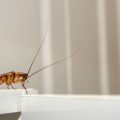


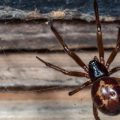
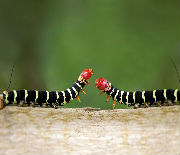
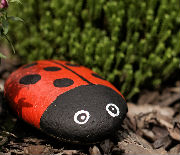
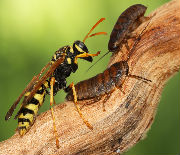
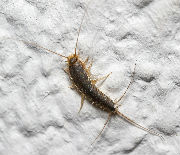
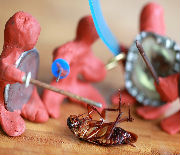
Leave a Reply